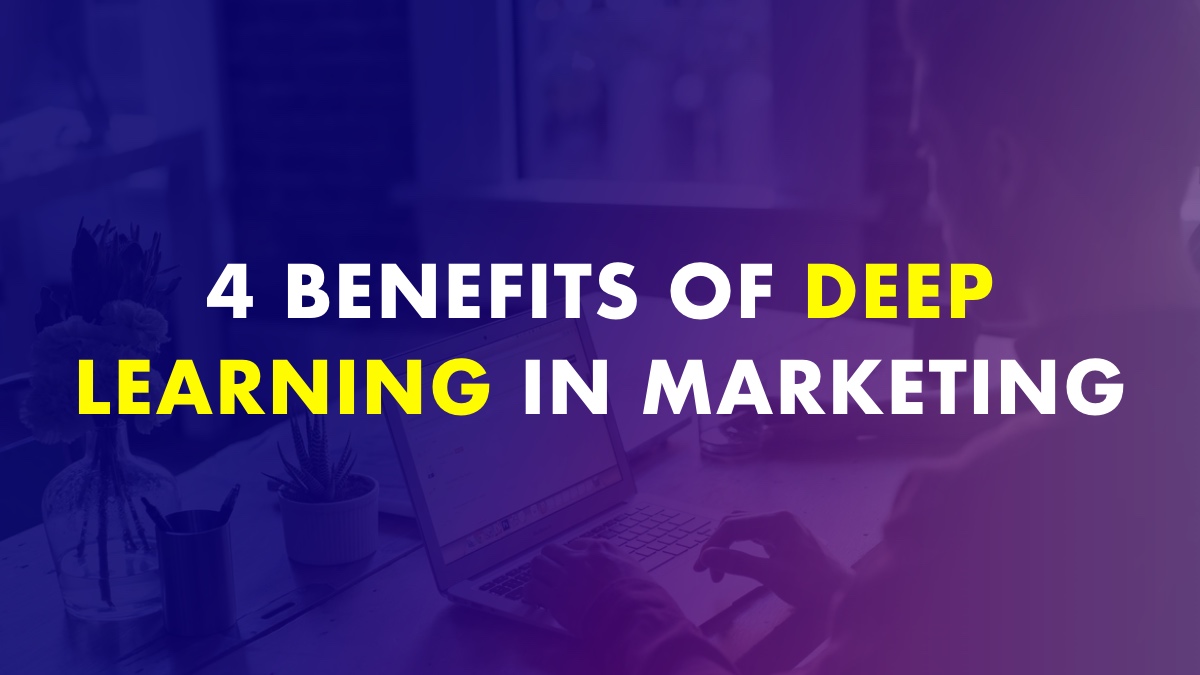The rapid advancement of technology has revolutionized human life. Today, anyone can efficiently do even the smallest of work with the help of technology. You’d be surprised to know how deep technology has enrooted into human life.
From your smartphone that shows your relevant ads to your social media page that suggests relevant pages you might like, all of this advancement has become possible with deep learning.
The introduction of deep learning in businesses has changed the way companies manage and utilize data. Modern enterprises have now begun to leverage features of deep learning in marketing, customer service, legal procedures, sales strategies, and many other business processes. Here are four incredible benefits of deep learning when applied in marketing.
1. Better Utilization of Unstructured Data
Enterprises deal with hundreds of terabytes of unstructured data on a daily basis. This business data is in different formats such as text, images, videos, audio, and document files. It isn’t easy to organize, manage, and evaluate this data for business intelligence because it is unstructured.
The conventional machine learning algorithms cannot deal with unstructured data, which creates many data inconsistency problems for companies, especially data-driven enterprises. This is when deep learning comes into the picture.
Deep learning enables companies to feed their unstructured data to train the algorithms and receive essential insights for business decisions. For example, deep learning can help predict future circumstances based on the current data patterns.

The company can paint a pretty good picture of their stock prices in the future based on their current stock prices, market conditions, and possible events in the future.
2. Automation of Feature Generation
Companies often spend plenty of time rolling out the new features of their existing applications. It requires many resources to generate even a single feature, and the additional time and resources can extend the final rollout timeline. Thankfully, deep learning can change the picture.
Deep learning algorithms generate new features from the existing data sets without additional human intervention. Over time, these algorithms perform complex tasks with higher accuracy that usually require human expertise and feature engineering. It helps businesses expedite their technology or application rollouts with greater accuracy and fewer errors.
3. Self-learning Capabilities
Deep learning works in a layered approach, which means it learns from its own mistakes as a human brain does. Each error it fixes becomes intelligent and avoids that error in the next iteration.
Over time, it becomes highly efficient in solving complex problems and even outshines the human brain in problem-solving. It goes deep each layer with more iterations and showcases the highest accuracy, which even humans cannot make possible.
These self-learning capabilities help companies verify the accuracy of their solutions and make necessary changes. The algorithm suggests different possible solutions to one problem, so you can decide the one that suits you.
With each problem it solves, the algorithm becomes more intelligent, which means the performance and the capabilities of the deep learning algorithm are directly proportional to the volume of datasets it solves.
4. Improved Marketing ROI
Many marketing tools and solutions already use the features of deep learning to some extent. As the core functionality of deep learning is to improve the process over time, it is possible to integrate deep learning in marketing.
It can help optimize different marketing strategies and find the ones that work the best. Introducing deep learning fundamentals in your marketing operations can also help remove non-performing resources and allocate them where needed.
It reduces a tremendous amount of marketing cost as well. Here are some of the real-life deep learning applications in different marketing tools and strategies:
- AI chatbot to create a human-like customer service
- Real-time bidding for ad spaces
- Natural Language Processing (NLP)
- Automatic copy generation based on previous copies
- Auto-translations of the website text
- Automatic closed captions/subtitles from the audio source
- Image to text generation
- Speech recognition
Deep learning deals with various unstructured data like images, videos, audios, and text in all the above applications and yet generates desired outcomes.
There’s no doubt that deep learning has revolutionized the businesses used to operate. If it is correctly applied and integrated with your existing system with the help of professionals, your business is bound to generate higher profitability.

